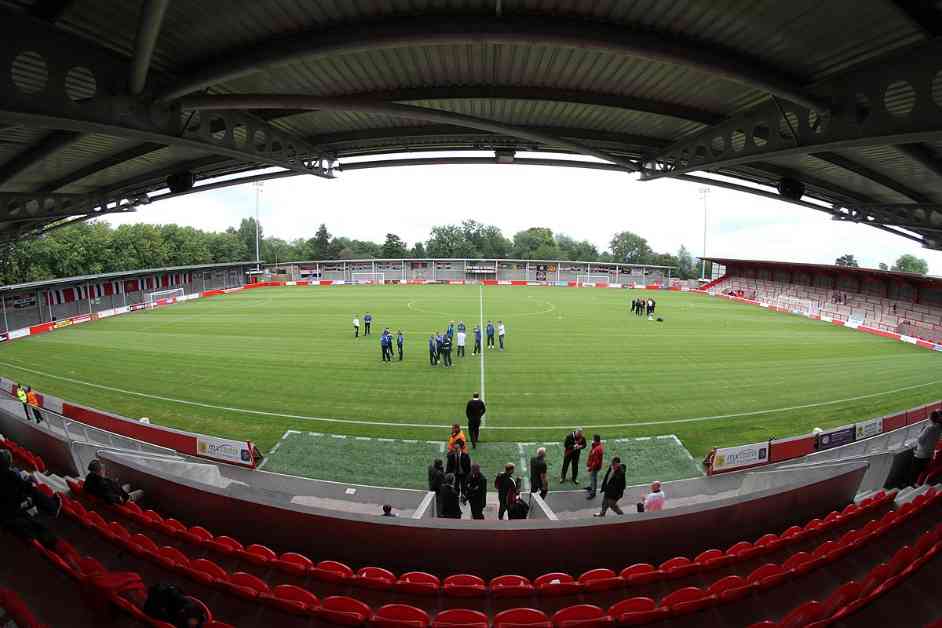FC United of Manchester Challenges Football Authorities Over New League Cup
FC United of Manchester has taken a stand against the National League’s decision to introduce a new League Cup, criticizing the football authorities for ignoring the concerns of supporters. The club, known for its strong supporter-owned ethos, raised objections to the competition that will see 16 National League clubs playing up to seven additional games per season.
The controversy surrounding the new League Cup comes in the wake of the National League’s earlier decision to eliminate FA Cup replays, a move that has been met with widespread criticism from non-league clubs. Mark Ives, the head of the National League, justified the decision to scrap FA Cup replays by citing concerns over fixture congestion and player welfare. However, the introduction of the new cup competition has raised questions about the true motivations behind the decision.
A spokesperson for FC United of Manchester expressed disappointment in the National League’s actions, stating, “Today, the true motivation behind his stance – and the quid pro quo deal – has finally come to light. Ives claimed that scrapping replays would ease fixture congestion and protect player welfare. Yet, with the announcement of the new National League Cup, 16 National League sides will now face up to seven extra games, competing against Premier League U21 teams for a £1m prize pot – courtesy of the Premier League.”
Supporters’ Opposition and Financial Impact on Non-League Clubs
The decision to eliminate FA Cup replays has had a significant financial impact on many non-league clubs across the country. For these clubs, FA Cup replays were seen as a valuable source of revenue that helped support their operations. The move to scrap replays has been met with frustration and disappointment among supporters who feel that the football authorities are prioritizing commercial interests over the well-being of non-league clubs.
The spokesperson for FC United of Manchester highlighted the negative repercussions of the decision, stating, “Supporters nationwide voiced their opposition to the removal of FA Cup replays, and the reaction to today’s announcement has been overwhelmingly negative.” The club emphasized the importance of FA Cup replays for non-league clubs and criticized the National League for disregarding the concerns of supporters in favor of commercial interests.
Impact on Non-League Football and Premier League Influence
The introduction of the new National League Cup has raised concerns about the growing influence of the Premier League on lower levels of English football. Critics argue that the competition will deepen the divide between Step One clubs and the rest of the pyramid, exacerbating existing disparities within the footballing hierarchy. The spokesperson for FC United of Manchester criticized the Premier League’s role in shaping the future of non-league football, stating, “Once again, it’s clear that the Premier League’s influence continues to infiltrate every level of the game, throwing money around to secure whatever outcome they desire.”
The spokesperson also drew parallels to the EFL Trophy, where fixtures against Premier League Academy sides have failed to attract significant attendance. The disconnect between fans and the football authorities has become increasingly apparent, with financial considerations often taking precedence over the interests of supporters and smaller clubs. Despite opposition from fans and clubs alike, the football authorities appear to prioritize financial gains over the integrity of the sport.
In conclusion, FC United of Manchester’s criticism of the National League’s decision to introduce a new League Cup reflects broader concerns about the direction of English football. The ongoing debate over the elimination of FA Cup replays and the introduction of new competitions highlights the challenges faced by non-league clubs in navigating a football landscape increasingly shaped by commercial interests. As the influence of the Premier League continues to grow, the need to protect the traditions and values of grassroots football becomes ever more pressing.

